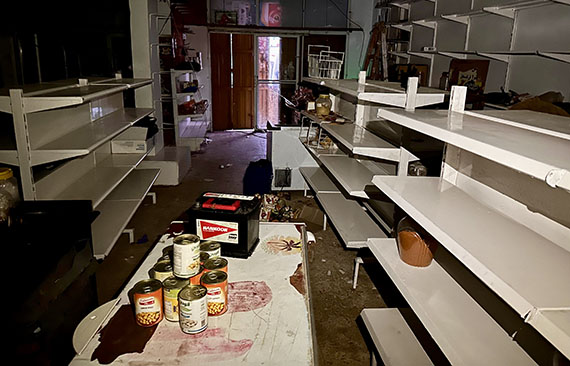|
Dear friend, The crisis in Gaza has reached a tragic milestone: More than 40,000 Palestinians have been killed, and the toll grows with each passing day. These aren’t just numbers — they are cherished sons, daughters, mothers, fathers, grandparents, and friends. They are lives and futures that have been extinguished far too soon. The unimaginable scale of this tragedy demands urgent action. Gaza continues to be the most dangerous place in the world to be a child or a humanitarian worker. Recent news about deadly airstrikes on aid convoys and the potential outbreak of polio have underscored the toll this war is taking on civilians each day. At Mercy Corps, we are doing everything possible to reach people in need. Over the past week, we were able to work with a local partner to distribute more than 900 food parcels and 1,000 hygiene kits in North Gaza. This marked the first time we were able to reach North Gaza with these urgently needed items — but there continue to be major obstacles preventing the delivery of aid, including delays, blocked access, and dangerous conditions on the ground.

A shop in Rafah is completely empty of food and other supplies as access to most of Gaza is nearly completely cut off. Photo © Shadow Pro for Mercy Corps
Polio was recently detected in wastewater samples in Gaza, suggesting the possibility of an outbreak. This is particularly dangerous for the estimated 50,000 babies who have been born since the beginning of this war. One Mercy Corps staff member described rapidly deteriorating health and living conditions:
Mercy Corps teams and partners continue to work to deliver critical aid for families in Gaza. And we will continue to be part of the global community’s urgent calls for a ceasefire, safe access for humanitarian aid, and the safe return of all hostages. We will provide further updates from our team members about conditions on the ground in Gaza and the status of our emergency response. Until then, please contribute any amount you can afford to help our team members and partners stay ready to deliver critical aid in Gaza and in crisis zones across the globe where violence, natural disasters, and climate change are pushing families to the brink of survival.
Sincerely, The Mercy Corps team |

|
|||||||||||